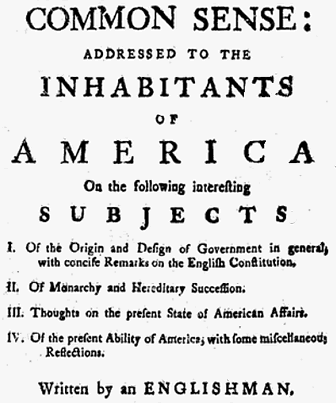 How can we deny young people the God-given experience of Sex, just because they’re not married?Given their compulsive, hormone-driven urges, that prohibition is at least insensitive, and often downright cruel.
How can we deny young people the God-given experience of Sex, just because they’re not married?Given their compulsive, hormone-driven urges, that prohibition is at least insensitive, and often downright cruel.
Our kids hear that rationale every day of their young lives. Why, then, are we so surprised when they become sexually active while they’re still kids?
Okay, confession time: At that age I wanted to dive into sexual experience, so badly that I could (figuratively) taste it. Was my Catholic rearing the reason I waited? Was my young character so well developed that I knew abstinence was the best choice?
Yeah, right! In fact, I was scared of rejection. If I had thought my advances wouldn’t have been spurned, no religious rules would have held me back.
Same goes for adults’ horror stories of sexual involvement gone wrong, of heartache, the pain of infidelity, VD. At sixteen I was invincible, immune to all the drawbacks of early sex. “Doing It” was all that mattered. How well I remember.
Does that mean our kids must necessarily follow the same path? While we parents can’t make their decisions for them, we have options available to help alleviate the hormone-flood’s damage. And they don’t include lecturing, sermonizing, or even Health Ed. class.
Steps to Peace with Sex
Sexual promiscuity’s least common denominator—ask your kids to explain the concept—is their lack of security in your love. When kids, especially daughters, know without a shadow of doubt that Mom and Dad love them, no matter what, they don’t need to prove to themselves that they are loveable.
What we parents must remember, though, is that proving our love for them necessarily begins with living our love for each other. The occasional, emotional discussion aside, when Mom and Dad bicker and show disrespect for one another, abuse each other verbally or physically, or just chill the family atmosphere through emotional detachment, the kids take that as a slap in their faces. At their young ages, even without having attended Positive Parenting classes, they naturally understand what parental discord means to them: Mom and Dad don’t love us enough to get along with each other.
necessarily begins with living our love for each other. The occasional, emotional discussion aside, when Mom and Dad bicker and show disrespect for one another, abuse each other verbally or physically, or just chill the family atmosphere through emotional detachment, the kids take that as a slap in their faces. At their young ages, even without having attended Positive Parenting classes, they naturally understand what parental discord means to them: Mom and Dad don’t love us enough to get along with each other.
Sounds simplistic, but even when(not if) we make parenting mistakes, their certainty, their security, their peace, in our love, gives them a firm foundation for accepting, and reciprocating, God’s love for them. And once they respect and submit to God’s loving authority, they’ll more likely respect and submit to your loving authority.
Now, Not Later!
“We have a few things to work out with each other,” is a popular response to this message. Translated, it says, “The kids can wait, we’re not ready to love each other.”
We’ve all heard the proverb, “No decision is a ‘No’ decision,” and your kids understand that full well. Marital discord is most often based in what you perceive as your personal rights versus those of your spouse. Yet, your kids have the prior right to live in a loving home. If you aren’t willing to give up some of your “rights,” which usually aren’t true rights at all, your kids will seek love elsewhere, before they understand what love really means.
Frankly, sex most often fills the gap. So, don’t expect your kids to “be good,” when you aren’t doing your primary job of loving one another more than yourself.
But, what about single parents?
God hates divorce. But because we are faulty human beings, divorce happens. Does God have a “Plan B” for those of us whose marriage failed? Yes!
If we willingly admit that “the marriage” didn’t fail, and that we did, confess our sinful part in the divorce, and sincerely repent before God, His grace covers even the broken lives that result from divorce.
The children damaged by our willful behavior that produced the divorce are another matter. While we were busy thinking of ourselves, our kids took every bitter word, every attack, every vengeful response, quite personally. Chances are, they feel as though they were responsible for all the fighting, despite all your assurances otherwise.
Yes, it’s damage control time. Since you’ve sinned against both them and God, regaining their trust and love depends on responding to your disastrous experience in a godly way. You’d be surprised how well children, even young children, understand confession and asking for forgiveness.
Once you’re single again, for your kids’ sake, you have to model godly behavior, especially in subsequent relationships. Sleeping around demonstrates to them the “right” way to establish relationships, so they’ll follow suit. “Do as I say … “ doesn’t cut it!
Yes, it’s hard. Yes, you want sex worse than ever. Yes, you’re so desperate for a loving relationship that you’ll do anything to get one. But your kids are watching, and learning, and when the test comes, they’ll follow your example with flying colors.
Your relationship with yourself, and with God, works much the same way as a marriage relationship. You must prove your love and respect for yourself and God, to prove your love and respect for them. Only then, will they have a snowball’s chance in … well, you know what I mean.

 Psalms 18:16-20 NASB He sent from on high, He took me; He drew me out of many waters. (17) He delivered me from my strong enemy, And from those who hated me, for they were too mighty for me. (18) They confronted me in the day of my calamity, But the LORD was my stay. (19) He brought me forth also into a broad place; He rescued me, because He delighted in me. (20) The LORD has rewarded me according to my righteousness; According to the cleanness of my hands He has recompensed me.
Psalms 18:16-20 NASB He sent from on high, He took me; He drew me out of many waters. (17) He delivered me from my strong enemy, And from those who hated me, for they were too mighty for me. (18) They confronted me in the day of my calamity, But the LORD was my stay. (19) He brought me forth also into a broad place; He rescued me, because He delighted in me. (20) The LORD has rewarded me according to my righteousness; According to the cleanness of my hands He has recompensed me. apologized for the horrific, destructive act we perpetrated against the innocent people of Japan. The August 6, 1945 a nuclear attack on Hiroshima, and the following day on Nagasaki, instantly killed between 100,000 and 120,000 people, with the final death toll reaching about 185,000. Words fail to adequately describe the scope of that tragedy, and debate still rages concerning America’s justification for using atomic bombs against cities.
apologized for the horrific, destructive act we perpetrated against the innocent people of Japan. The August 6, 1945 a nuclear attack on Hiroshima, and the following day on Nagasaki, instantly killed between 100,000 and 120,000 people, with the final death toll reaching about 185,000. Words fail to adequately describe the scope of that tragedy, and debate still rages concerning America’s justification for using atomic bombs against cities. How can we deny young people the God-given experience of Sex, just because they’re not married?Given their compulsive, hormone-driven urges, that prohibition is at least insensitive, and often downright cruel.
How can we deny young people the God-given experience of Sex, just because they’re not married?Given their compulsive, hormone-driven urges, that prohibition is at least insensitive, and often downright cruel. necessarily begins with living our love for each other. The occasional, emotional discussion aside, when Mom and Dad bicker and show disrespect for one another, abuse each other verbally or physically, or just chill the family atmosphere through emotional detachment, the kids take that as a slap in their faces. At their young ages, even without having attended Positive Parenting classes, they naturally understand what parental discord means to them: Mom and Dad don’t love us enough to get along with each other.
necessarily begins with living our love for each other. The occasional, emotional discussion aside, when Mom and Dad bicker and show disrespect for one another, abuse each other verbally or physically, or just chill the family atmosphere through emotional detachment, the kids take that as a slap in their faces. At their young ages, even without having attended Positive Parenting classes, they naturally understand what parental discord means to them: Mom and Dad don’t love us enough to get along with each other.
 Thomas Paine published a pamphlet entitled Common Sense in January 1776. It called for America to become independent of Britain and a copy of the original is considered a treasure of the US Library of Congress, being one of the wellsprings of the thinking that founded the country. Common sense, that is, a plain practical 'get on with the job' philosophy is part of the American psyche.
Thomas Paine published a pamphlet entitled Common Sense in January 1776. It called for America to become independent of Britain and a copy of the original is considered a treasure of the US Library of Congress, being one of the wellsprings of the thinking that founded the country. Common sense, that is, a plain practical 'get on with the job' philosophy is part of the American psyche.  By the time that Paine began writing in the 1770s, the term 'common sense' had migrated a little more and was widely used to mean 'primary truth', that is, the unquestionable beliefs that all people receive from their experience of being alive. Richard Price defined the term in Review of the Principal Questions in Morals, 1758:
By the time that Paine began writing in the 1770s, the term 'common sense' had migrated a little more and was widely used to mean 'primary truth', that is, the unquestionable beliefs that all people receive from their experience of being alive. Richard Price defined the term in Review of the Principal Questions in Morals, 1758: